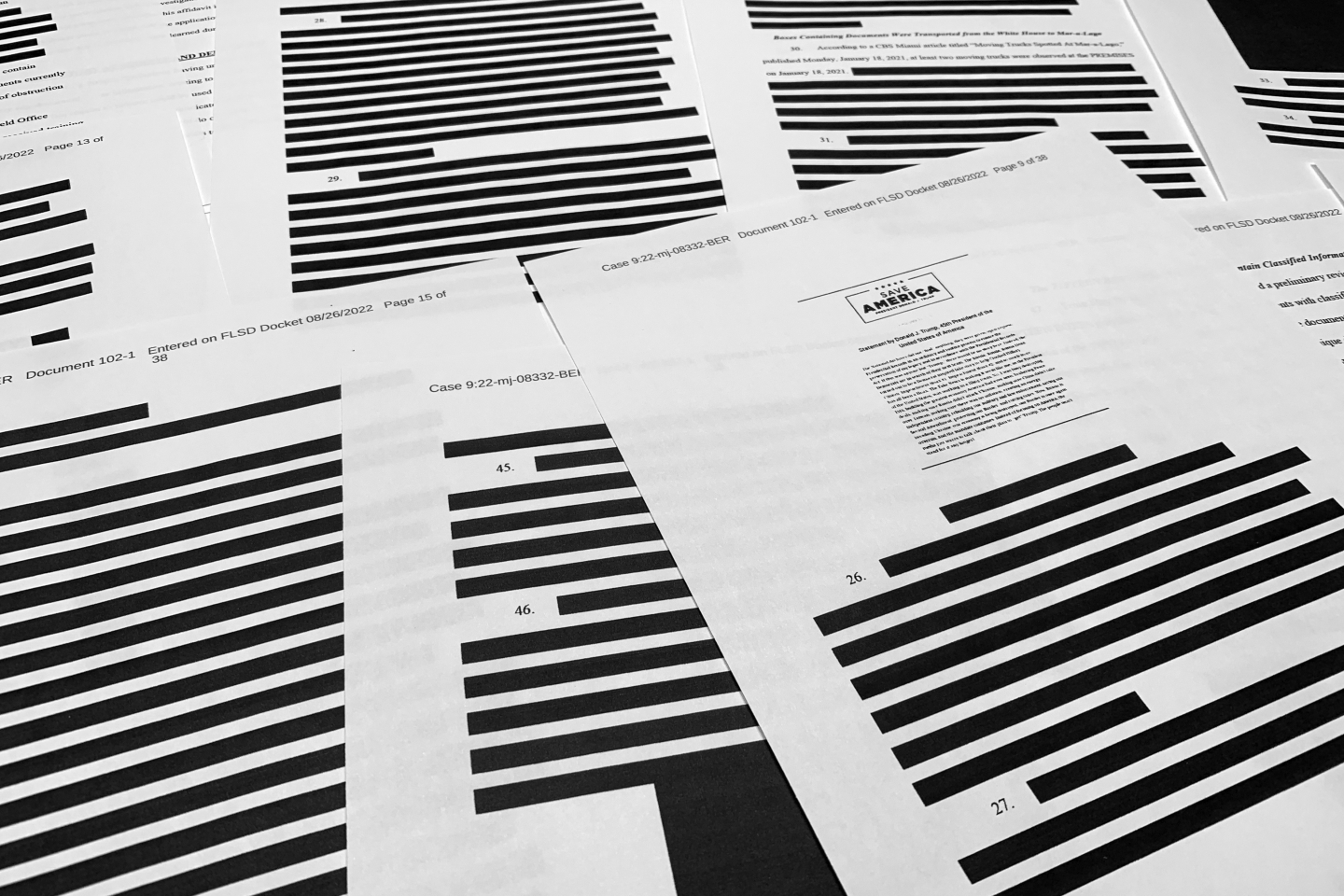![]()

by Julie Kelly
Top Biden administration officials worked with the National Archives to develop Special Counsel Jack Smith’s case against Donald Trump involving the former president’s alleged mishandling of classified material, according to recently unsealed court documents in the case pending in southern Florida.
More than 300 pages of newly unredacted exhibits, containing emails and other correspondence related to the early stages of the hunt for presidential papers, challenge public statements by Joe Biden about what he knew and when he knew it regarding the case against his political rival.
The new disclosures indicate the Department of Justice was in touch with the National Archives and Records Administration (NARA) during much of 2021, undermining the DOJ’s claims that it became involved in the matter only after the Archives sent it a criminal referral on February 9, 2022, based on the findings of records with “classified markings” in 15 boxes of materials Trump gave to the Archives a month prior.
The court exhibits, which were compiled by Trump’s defense lawyers and kept under seal until last week, also show that Deputy White House Counsel Jonathan Su regularly communicated with Archive officials.
Although Biden himself is not mentioned in the exhibits, the active participation of Su and other high-ranking White House officials raises questions about whether Biden was forthright when he told “60 Minutes” he wasn’t involved in the investigation.
“I have not asked for the specifics of those documents,” Biden told Scott Pelley in the Sept. 17 broadcast, “because I don’t want to get myself in the middle of whether or not the Justice Department should move or not move on certain actions they could take. I agreed I would not tell them what to do and not, in fact, engage in telling them how to prosecute or not.”
Trump’s lawyers first filed the heavily redacted material in a January motion, under a standing protective order issued by the court to initially conceal potentially sensitive information. His team then asked U.S. District Court Judge Aileen Cannon, who is presiding over the matter in southern Florida, to remove many of those redactions based on her review.
A protracted battle ensued as Smith fought to keep large portions of the motion and accompanying exhibits from the public. Smith told Cannon that disclosing the material would jeopardize the investigation and expose potential witnesses and government employees to “significant and immediate risks of threats, intimidation, and harassment.”
But Cannon, arguing the need for public transparency, authorized the unsealing of the files, which were posted in mostly unredacted form on April 22. A comparison of the redacted and unredacted material shows the Archives acted in concert with several Biden administration agencies to build the case — coordination that included the DOJ, the Biden White House, and the intelligence community.
The Trump case prompted revelations that both Biden and former Vice President Mike Pence had also retained classified documents – in Biden’s case for decades, stretching back to his time in the Senate. But while the Archives’ outreach to Biden and Pence consisted of requests, the agency took a more assertive stance with Trump.
Within weeks of Trump’s leaving office in 2021, employees with Biden’s Office of Records Management and the Archives began coordinated demands to Trump’s transition team, including former Chief of Staff Mark Meadows.
Gary Stern, the Archives general counsel, noting “several conversations” with records office employees to discuss “concerns” about material in Trump’s possession, emailed Trump’s team in May 2021 and asked them to account for “roughly two dozen boxes of original Presidential records [that] have not been transferred to NARA.”
Stern did not specify the files the Archives wanted beyond “original correspondence between President Trump and North Korean Leader Kim Jung-un” and “the letter that President Obama left for President Trump on his first day in office.” An unsealed FBI report indicated the Archives also sought the so-called “Sharpiegate” map of Hurricane Dorian that the former president used during a 2018 televised briefing on the track of the storm.
Despite Trump’s cooperation, David Ferriero, the national archivist appointed by Barack Obama in 2009, warned the transition team a month later in June 2021 that he was running “out of patience.”

Before-and-after illustration 1: Unredactions on the National Archives’ early and aggressive focus.
By August 2021, Ferriero and Stern were in contact with DOJ officials and at least one White House attorney to develop what initially appeared to be a records destruction case against Trump. According to White House visitor logs, Stern met with Su on August 12 at the White House.
From that point on, the collaboration between the White House and Archives accelerated. On Aug. 30, 2021, Ferriero, making unfounded accusations that 24 boxes of materials were missing, warned Trump’s team, “At this point, I am assuming [the boxes] have been destroyed. In which case, I am obligated to report it to the Hill, the DOJ, and the White House.”
A Trump staffer whose name remains redacted responded, “To my knowledge, nothing has been destroyed.”
The archives, with apparent guidance from top White House lawyers, pressed forward. On Sept. 1, Stern sent an email to Ferriero and deputy archivist Debra Wall with the subject line, “Draft Letter to AG re Missing Trump Records.” In the Sept. 1, 2021 email, Stern disclosed that he already had “reached out to DOJ counsel about this issue,” and that “WH Counsel is now aware of the issue.”
An attachment to the email included a draft letter from Ferriero to Attorney General Merrick Garland to notify him that presidential records “may have been unlawfully removed from U.S. government custody or possibly destroyed.”
On Sept. 2, presumably with the draft letter in hand, Ferriero met with White House Counsel Dana Remus in her office, according to visitor logs. The draft letter was not sent as the Archives and White House continued to advance the case behind the scenes.

